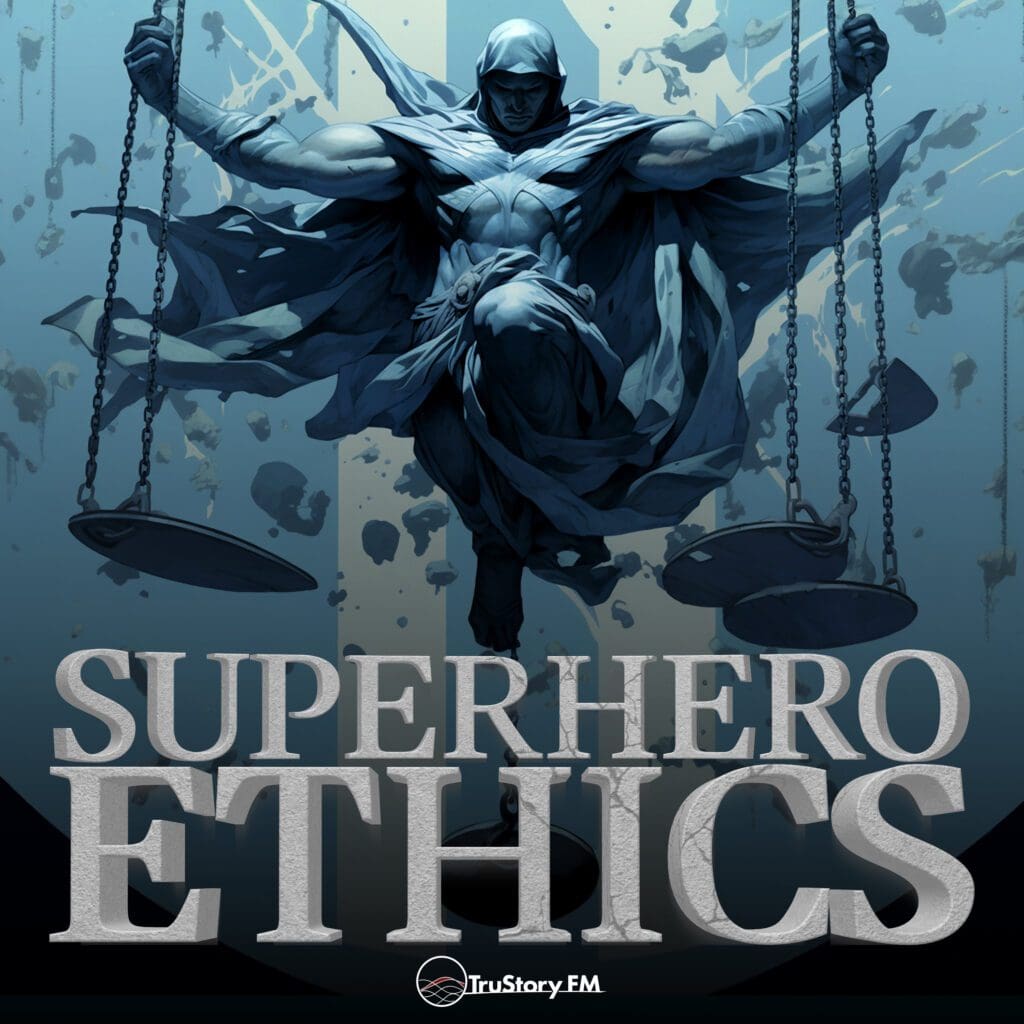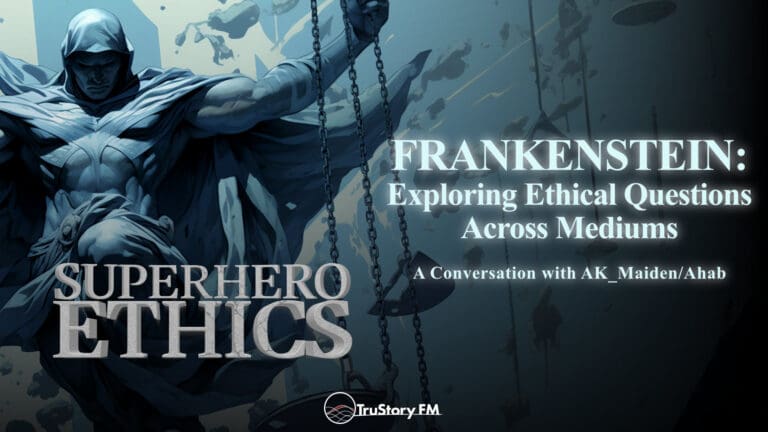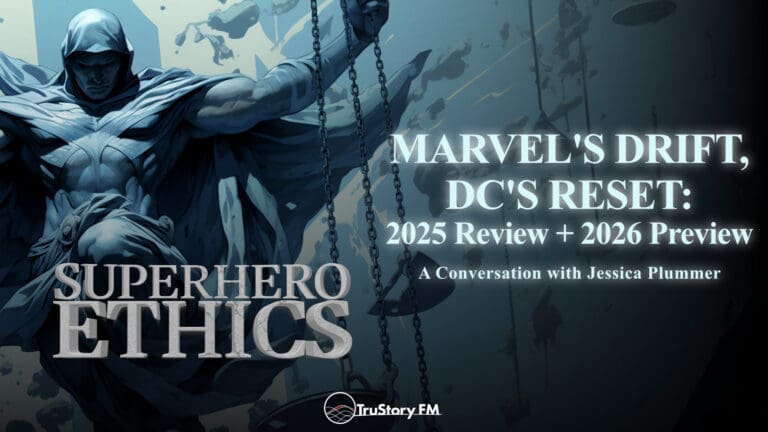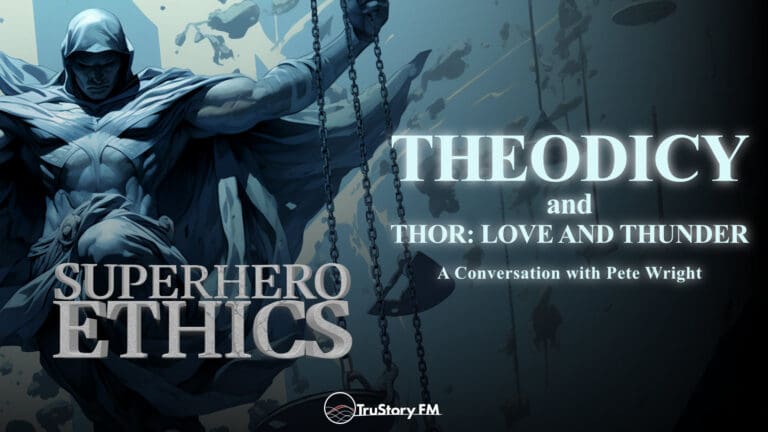The Hunger Games: Sunrise on the Reaping – Propaganda, Complicity, and Haymitch’s Story
In this episode of Superhero Ethics, hosts Matthew and Riki welcome special guest Danielle from WrittenInTheStarWars to dive deep into Suzanne Collins’ newest novel in The Hunger Games franchise, Sunrise on the Reaping. The trio explores how this prequel reveals the true story behind Haymitch Abernathy’s Games and challenges what readers thought they knew from the original trilogy.
What makes Suzanne Collins’ writing unique in YA literature?
The hosts discuss Collins’ masterful use of first-person narrative, with Danielle highlighting how Collins understands both the strengths and weaknesses of this perspective. Her intentional structuring of chapters and story arcs keeps readers engaged while delivering complex themes accessible to young adults without oversimplifying them. The conversation explores Collins’ famous quote: “I don’t write about adolescents. I write about war for adolescents.”
How does propaganda shape the story in Panem?
Sunrise on the Reaping reveals how the Capitol manipulates narratives, showing that what Katniss learned about Haymitch’s Games was heavily edited propaganda. The book explores how different forms of propaganda work—from entertainment spectacles to subtle messaging that convinces citizens the Games are necessary for peace. Characters like Effie Trinket demonstrate how effective this indoctrination can be, while others show resistance to these manufactured stories.
What do we learn about Haymitch as a character?
The novel provides a stark contrast between the real Haymitch and the persona crafted by Capitol editors. Readers discover he was someone who refused to think of other tributes as enemies, consistently protected others, and maintained his humanity throughout the Games. The book also reveals his tragic journey toward alcoholism, showing how it began as medical treatment before becoming his coping mechanism for trauma and loss.
Other topics discussed:
- How Maysilee Donner evolves from a “mean girl” to one of the book’s most compelling characters
- Why Collins may have written this book now as a response to current political events
- The difference between how Haymitch’s relationship with Maysilee was portrayed in propaganda versus reality
- The careful way Collins handles familiar characters from the original trilogy appearing in the prequel
- The humanity of Career tributes and how they too are victims of the Capitol’s system
- The theme of complicity and how everyone in Panem’s system becomes part of maintaining its horrors
The conversation concludes by reflecting on how Collins uses her storytelling to encourage readers to question propaganda in their own lives and recognize complicity in unjust systems. By revisiting Haymitch’s Games, she reminds us that history is often written by the victors—but truth can be a powerful tool for rebellion.
Links
Follow these links to earlier discussions on The Hunger Games with Danielle:











